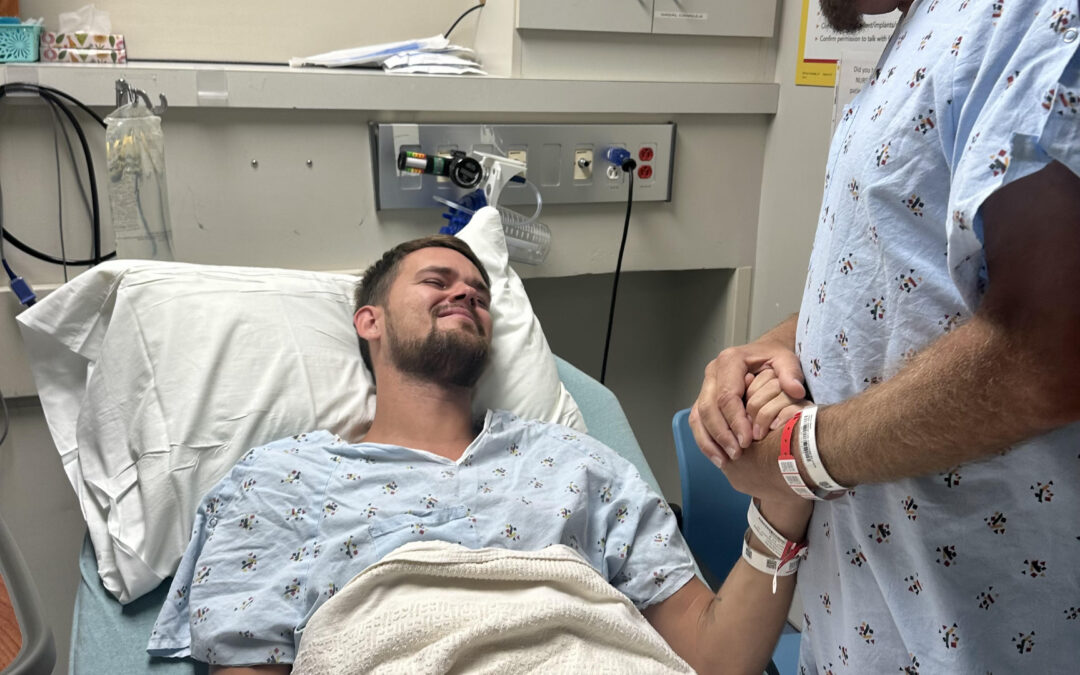Recently the Alloy Wealth Management family learned very quickly about living organ donation when our founder and CEO, Mark Henry, received the gift of life from our Marketing Director and Mark’ son, Hunter Henry. Mark had battled diabetes for years which led to Chronic Kidney Disease, or CKD, eventually causing him to be on the brink of kidney failure when Hunter was tested and found to be a perfect match. When team members and clients heard the news, they couldn’t believe it. Anyone who knows, or has met Mark, knows him to be an energetic guy who doesn’t know the meaning of the word “stop”. He has always on the go for work, and family, but managed to maintain a daily or twice daily fitness regime. How does someone like that end up needing a kidney transplant? It is more common than you’d think.
Approximately 1 in 3 adults with diabetes has CKD, and both type 1 and type 2 diabetes can cause kidney disease and lead to kidney failure, yet other health issues can as well. High blood pressure, certain autoimmune diseases, genetic kidney diseases, problems with the urinary tract, and lifestyle choices can result in CKD and lead to kidney failure.
According to the CDC, over 800,000 people live with end stage kidney disease so it’s no surprise that, although living organ donors can donate a portion of their liver and certain tissues, 85% of those on the organ transplant list are waiting for a kidney.
Hunter was the ideal candidate to donate one of his kidneys to his father because of his age, fitness level, and current health. It has been over a week since Mark and Hunter had surgery and both are doing remarkably well. Mark’s renal system responded quickly to Hunter’s healthy kidney, and surgeons say he is breaking recovery records. Hunter’s surgery went flawlessly as well, and his recovery is as expected, his biggest challenge is remembering that he is limited in what he can do physically for at least 6-8 weeks.
Although Living donors face the risks of surgery and need time away from work and activities while recovering, donating an organ, or portion of one, can save a life and most donors say their experience was a positive one without negative impacts to their own health. If you are considering becoming a living organ donor, do your research. Organizations like Donate Life America offer education and information about becoming a living organ donor, and donor registration online. UNOS shares stories and tributes on their website along with organ donation recovery information and much more. Donating life is a selfless gift but a big decision to make, and one that should not be taken lightly.
